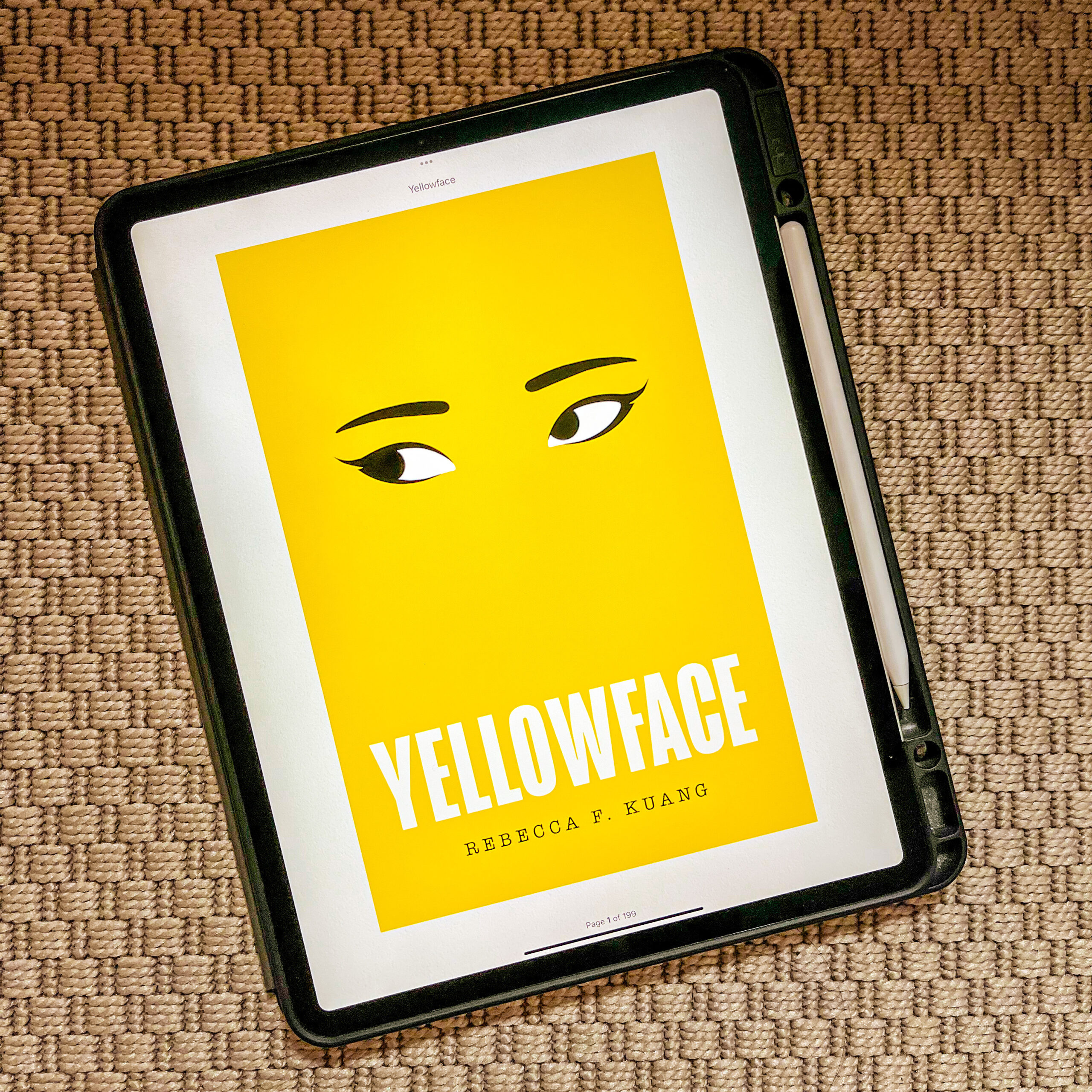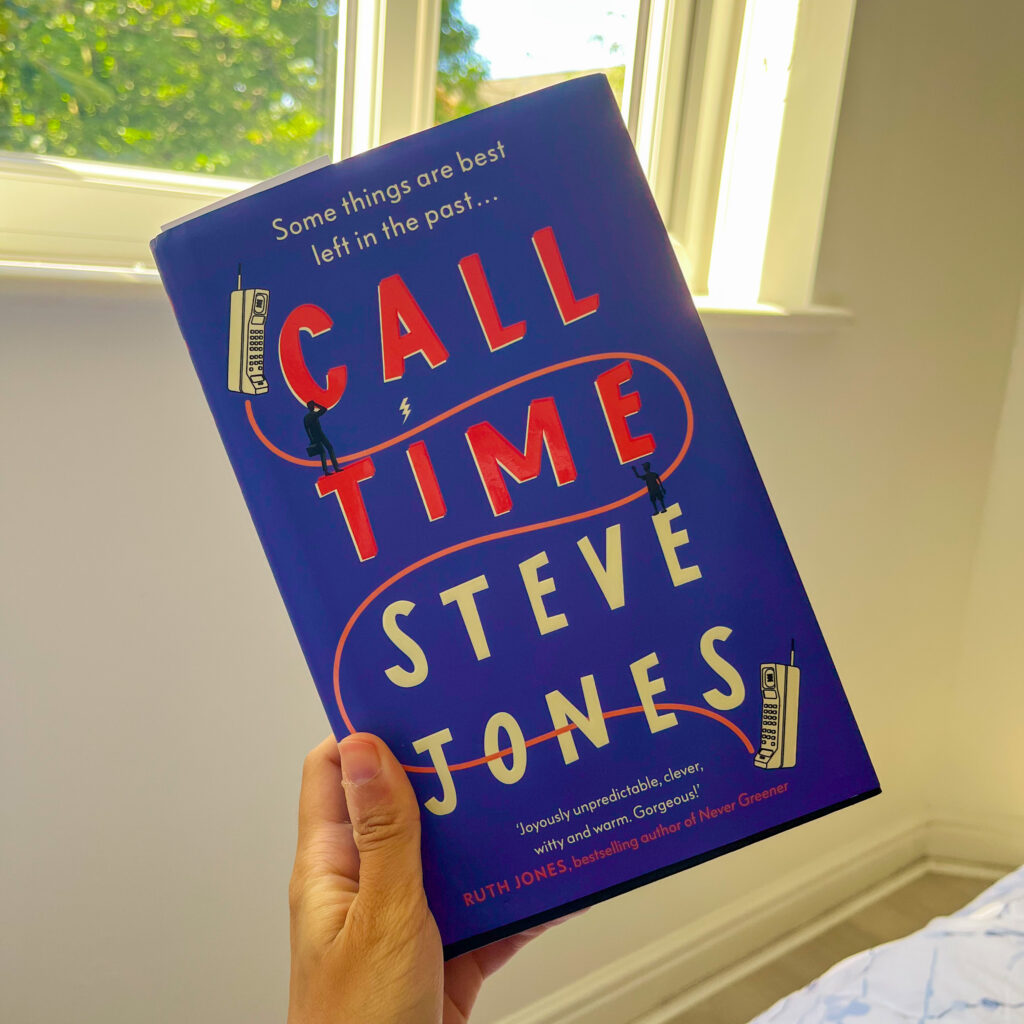⭐️⭐️⭐️⭐️⭐️
I read this book over the weekend, and I was instantly hooked! This novel is about a white writer June Hayward who steals her Asian-American friend’s, Athena Lui, manuscript after she dies and publishes it as her own work. It shows us the behind the scenes of the brutal publishing industry and the awful effects of social media (notably twitter mobs) that are ready to tear anyone down. It also explores race, ownership and writing in general. It is fast paced and there wasn’t a straight-forward, black and white side to pick throughout the narrative, which I thoroughly enjoyed.
The story unfolds about how Jane convinces herself that her act wasn’t plagiarism. The novel she stole was about the Chinese involvement in World War 1, of which she read thoroughly upon. Yellowface is written in the first person from the point of view of June, but it wasn’t clear whether to sympathise with her or not. I personally disliked June from the beginning of what she did, but I can also appreciate some of her thoughts of being able to write what you like, and isn’t all writing inspired by someone anyway? The way she was treated by the public on social media made me really feel for the character, but also was very representative of what the landscape is like today. Being cancelled sounds like a real rough journey!
I found Kuang’s writing style very accessible (although I stlil had to look some words up, thank you ‘look up’ feature on the borrowbox ipad app!) and she really opened up a can of worms on the way the publishing industry treats people of colour and women. June is clearly desperate, but I can also see why that’s not really her fault. Lui, although wrote the original work, was no saint herself. I personally didn’t like June’s character throughout and what kept me going was really seeing how the story plays out. I’m so gutted I missed Kuang on her book tour, and any bookclubs that this was discussed because it would be perfect for a bookclub discussion! I really recommend this novel, it’s definitely worth the bookstagram hype. Happy reading
Spoilers Ahead
I personally disliked June from the beginning, the minute she stole the manuscript and passed it off as her own. As someone that isn’t Chinese, or white, I naturally sympathise with the Chinese side more in that it is yet another example of a white person taking credit for a person of colour’s work, especially when the publishing industry is saturated with white voices. Saying that, Kuang does highlight that the publishing industry doesn’t have the Asian writer’s best intentions either, since there are the ‘tokens’ or it feels like their voices are wanted for ‘the next big thing’ (i.e. makes them the most money) instead of actually caring about their stories.
I remember Dr. Rangan Chatterjee talking on his podcast about how a publisher told him there was already an Indian doctor on the bookshelves so he couldn’t publish at that time. It’s the classic ‘no room at the table’ mindset instead of ‘why don’t we make the table bigger?’ because there doesn’t seem to be a cap on the number of white American writers?
The character of June was pretty unlikeable from the second she didn’t want the cultural sensitivity review. This was a bit fishy, and the fact it was Candice that was taunting her later wasn’t a surprise. Candice clearly didn’t care about Athena either, she even admits she hated her her, however, this shows that it goes further than just standing up for fellow Asians but more to get justice and make a point against white people, which isn’t necessarily a good motive. It also showed how the toxic publishing industry literally pits people of colour against each other, which only works to their own advantage.
The book captured the Twitter mob so well. Everyone on Twitter thinks their opinion is God’s gift and it reeks of self-righteousness. This doesn’t mean that June was innocent, but why do people think that someone like June is going to change her mind if they attack her on the internet and send death threats? She is still a human being (a foul one at that) but no wonder she takes the defensive and buckles down more on her point that what she did was perfectly fine. The point turns from making sure Asian writers get their justice to just making sure white people are shoved down.
June makes an interesting point about whether white people can write novels about people of colour, just like the other way around (which happens sometimes too). It’s a culturally sensitive topic and I think it’s more heightened than a man writing about a woman character (who seem to never have periods…) and vice versa. We cannot tell people what they can and cannot write when writing is an art form that people use to express themselves. Censorship, in this sense, defeats the whole purpose of writing if we start pigeonholing and gatekeeping the content.
I reckon people are more culturally sensitive to white people writing about POC characters and experiences because of the role white people have had in the oppression of POC’s history which is incredibly dark. Whole nations have never apologised or retributed what they have done (cough the British empire cough). Therefore, I do find it a bit ignorant when white (British and American) writers can’t comprehend why people feel this way towards them writing about POC experiences because it feels they may have ignored the reasoning and gone straight to the logic of ‘I can write what I want’.
This book was so thought-provoking for me, and I felt my brain was constantly whirring away with the fact it wasn’t as black and white as I thought. I hope that more conversations like this are happening, and I love that novels let us question things. It’s also made me realise I need to not get so angry just when people defend the white person in the wrong, but learn how to communicate my thoughts properly to get my points across otherwise I’m really no better than the narcissistic Twitter mobs.
Yellowface by R.F. Kuang is a must-read for anyone interested in exploring the complexities of Asian identity and representation in literature. It’s an insightful exploration of an important topic in narrative form. Kuang’s writing is engaging and accessible, making this book an excellent choice for anyone looking to deepen their understanding of Asian American identity and representation. Let me know what you thought of it!

